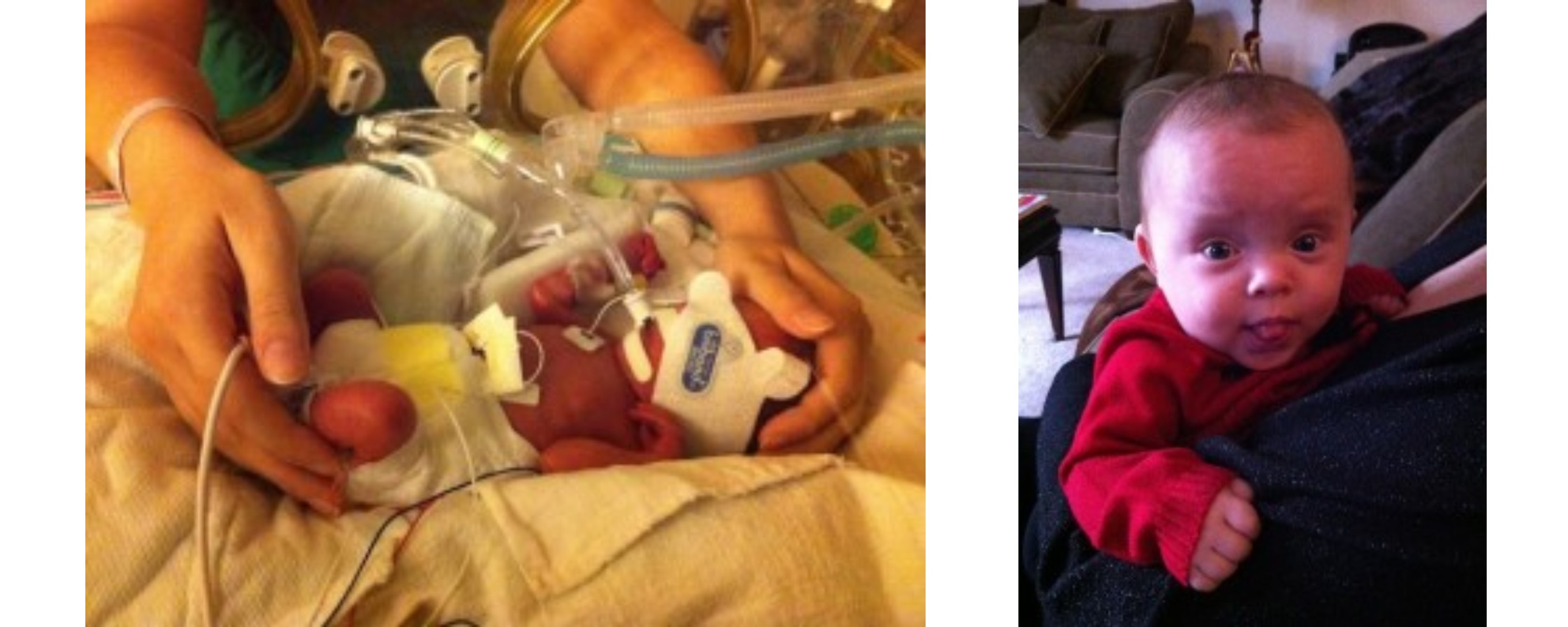Stress, Grief and Mental Health

Someone once told me, depression doesn't mean you're weak. It means you've tried for too long to be strong. Months after my daughter came home from the hospital, those words resonated with me so much.
My pregnancy had been plagued with stress. At 12 weeks, we had our nuchal translucency screening and were told our child was high-risk for Down syndrome. I was told I was a carrier for cystic fibrosis, and my husband would need to be tested. I was told that the baby might have a congenital heart defect. For months the anxiety was nearly unbearable. I researched like a maniac; I cried and I worried. After genetic testing and a fetal echocardiogram, I was finally in the clear at around 22 weeks. For a blissful month, my pregnancy didn't have a dark cloud looming over it.
Then at 26 weeks along, I was at work and sitting at my desk when I started to hemorrhage.
My OBGYN's office was located right across the street, but by the time I made it to the exam room and changed into the paper gown, blood was streaming down my legs and forming a pool at my feet. I left there on a stretcher.
I spent the next two weeks in the hospital confined to a bed, sorely in need of a shower, arms black and blue from IVs and daily blood testing. Every couple of days I would bleed again and go into labor. Each time, I would be wheeled to the Labor & Delivery unit and be given a 12-hour IV dose of magnesium sulfate that made me deliriously ill, but it helped to calm the contractions. I had an ultrasound three times a week, but nobody could locate the precise source of the bleeding or discern the reason, other than to tell me it was "probably" a placental abruption.

One morning, at 28 weeks pregnant, I began to have especially strong contractions at around 4 a.m. This time, my water broke. Within the hour, my daughter was born via C-section. I remember the moment they pulled Evelyn out and held her up for me to see. So tiny and fragile. She weighed 2 pounds, 7 ounces and was 14 inches long. She had a black eye from the delivery. She let out a little cry that sounded more like the "mew" of a kitten, and then, because she was intubated, it would be a month until I heard her cry again, and a week before I could hold her.
The doctors praised me: I had held onto the baby for an extra two weeks and given her that beneficial extra time to grow. I just couldn't get my mind around that concept. I was supposed to give her 40 weeks to grow, not 28. My body had failed her. She was encased in plexiglas with wires attached to her and a tube down her throat, being touched, poked and prodded. I had failed to do something every other woman seemed capable of doing. I wept and punched the pillow of my hospital bed, desperate to find an outlet for my anger and grief. I remember the hospital asking me to fill out the standard post-partum depression checklist. I don't know why they bother giving them to preemie moms.
My daughter spent 68 relatively uneventful days in the NICU. At nearly 5 pounds (we thought that was so big!) she came home with an oxygen concentrator, apnea belt and pulse oximeter, and was on six medications. That was the last week of August, 2012. By December, she was off all the medication and equipment. She was doing great.

Πηγή: Preemie Babies 101
